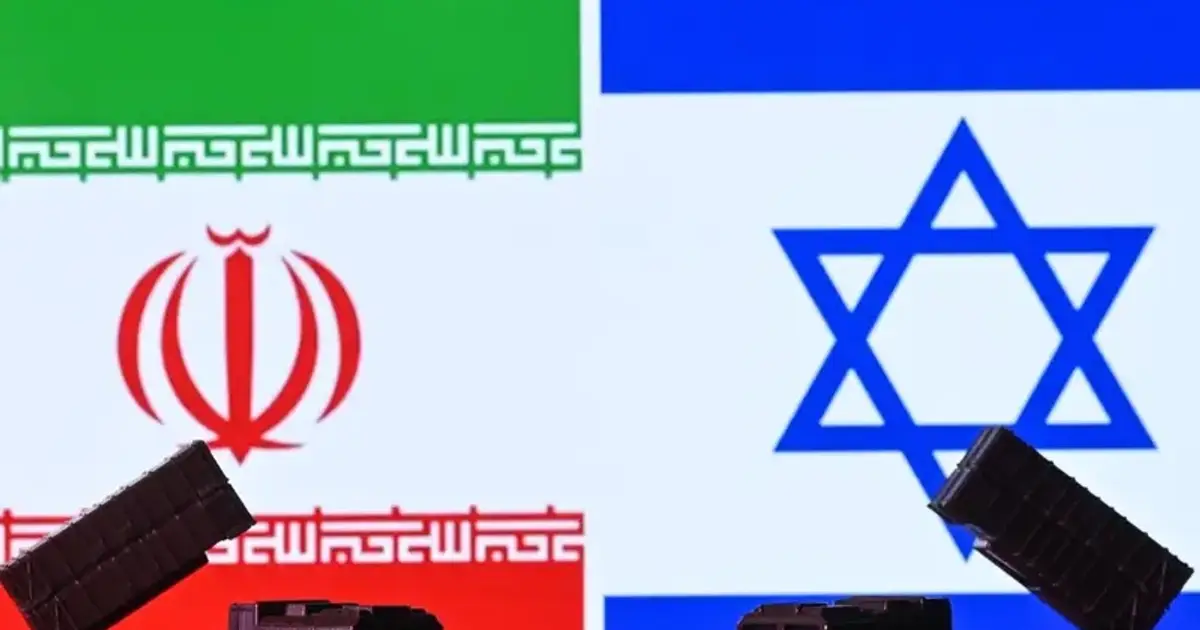Israeli insider warns looming war with Iran will be different

A former high-ranking official in Israel's military, who led the country's air defense forces from 2015 to 2018, stated that the possibility of conflict with Iran has evolved since Tehran's initial strike on Israel in April.
Iran's partners, Hezbollah in Southern Lebanon and the Houthis in Yemen, were not involved in the events on April 13 when Iran used explosive drones and missiles to attack Israel. This marked the end of a long-standing conflict between the two countries.
The incident happened shortly after a suspected Israeli attack in Syria, where two commanders belonging to the Islamic Revolutionary Guards Corps (IRGC) were killed at an Iranian consular building. This attack occurred less than two weeks after the previous event.
There is a possibility of an upcoming war that has emerged shortly after the death of Hamas leader Ismail Haniyeh in Tehran, Iran. Haniyeh was visiting the capital for the swearing-in ceremony of Iran's new president, Masoud Pezeshkian.
Iran's top leader, Ayatollah Ali Khamenei, promised to strike back against Israel on Wednesday. The Islamic Revolutionary Guard Corps (IRGC) stated that there would be retribution for Haniyeh's death.
Brigadier General Zvika Haimovich thinks that Hezbollah will play a significant part in Iran's response this time. The Israeli military expert said he cannot imagine any scenario where Iran does not retaliate to the recent killing, which was attributed to Israel by Tehran.
Israel has not confirmed nor denied any participation.
Haimovich spoke to Iran International and mentioned that there are still many unknowns that will ultimately decide if a large-scale war will occur.
He started by asking which areas of Israel Iran would target - whether it would focus on central cities like Tel Aviv or stick to the northern region near Haifa. The next question he raised was whether Iran would use advanced, precise missiles or stick to basic, less accurate weapons. Finally, he questioned whether Iran would launch a large barrage of rockets all at once.
Everyone is feeling the stress, especially civilians and the armed forces who are on high alert and prepared along the border. The Army, Navy, and Air Force are all on standby. What are we waiting for? That is the question on everyone's mind," said Haimovich, who oversaw the activation of the Iron Dome system during his time in office.
As residents in the area wait, there is a sense of unknown about when Iran will make a move, and the extent of their actions. Haimovich stated that the attack could happen very soon, possibly within the next 48 hours or within the next few days.
President Joe Biden and Vice President Kamala Harris gathered with their national security advisors in the White House Situation Room on Monday afternoon.
The Pentagon spokesperson told Sky News Arabia that there have been no noticeable actions in Iran that would suggest any possible threats to Israel in the near future.
The United States has promised to take action after a rocket attack injured multiple American personnel at Ain al-Assad airbase in Iraq. According to Sabereen News, which is linked to the IRGC, Iran-backed militants were responsible for the attack, although no group has officially claimed responsibility.
As reported by Bloomberg, sources familiar with the situation have stated that the G7 countries have contacted Iran in an effort to reduce its retaliatory actions and avoid further escalation of tensions in the region.
The former Israeli Commander said that Israel's response to Iran's retaliation will depend on how Tehran carries out its attack and the type of attack it is.
During a special conversation with Iran International, ex-CIA chief and US CENTCOM Commander David Petraeus mentioned that Iran and Israel will likely steer clear of a major war to prevent the widespread damage it could cause to each of them.
Petraeus expressed his belief that the Iranians should take action in response to the recent events. He stated that the situation has tarnished Iran's reputation and highlighted significant failures in intelligence and security. Despite this, Petraeus does not believe Iran is interested in engaging in a direct conflict with Israel. He also believes that Israel does not want to escalate tensions into a full-scale war with Hezbollah or Iran.
Haimovich noted that the Israeli counterattack in April sent a clear message to the Iranian regime, yet he expressed doubt about its effectiveness. He highlighted the strike on Iran's advanced radar system in Isfahan shortly after Tehran carried out hundreds of drone and missile assaults on Israel. This demonstrated that Iran's defenses were no match for Israel's military strength.
"After the April actions taken by Israel, the Iranian government now realizes the full extent of Israel's capabilities," he explained.
As people around the world wait to see what happens next, Brigadier General Zvika Haimovich, a retired IDF commander, explained that Israel's main focus is on ensuring the safe return of hostages and defeating Hamas. He also noted that any potential larger conflict in the region would need to take into account Israel's overall strategic objectives in both the short and long term.
"It's a very complex situation. I believe that for the time being, we must focus on resolving the multiple conflicts we are currently facing. There are over seven different areas of conflict," stated the Brigadier General, discussing the ongoing multi-front war involving Gaza, Lebanon, Syria, the West Bank, Iraq, Yemen, and Iran.
Getting involved in a war with Iran could lead to a larger conflict in the region.
"In the future, I believe we should concentrate on addressing the Iranian nuclear program, utilizing our vision and resources, and forming a robust and steady alliance spearheaded by the United States and the Arab Sunni countries to counter Iran," he stated.













































